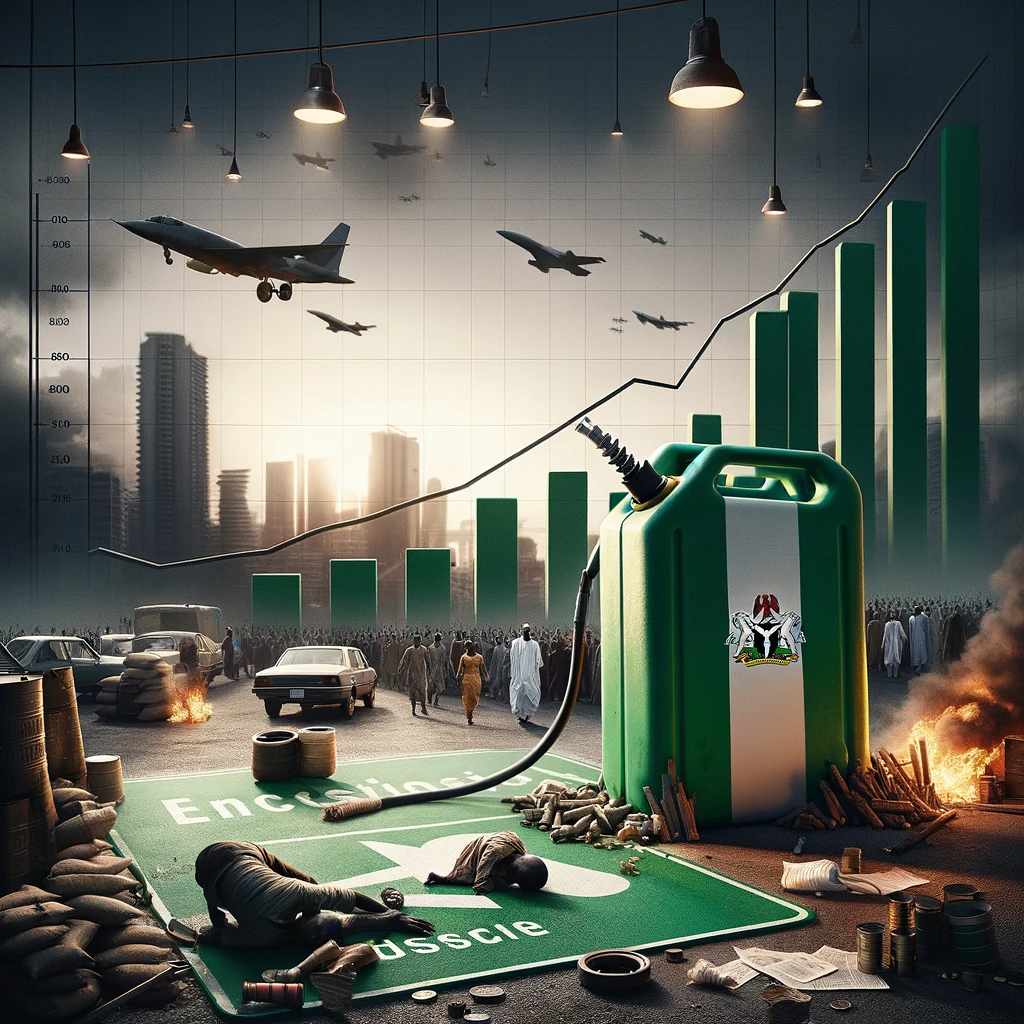The spotlight is on Nigeria, guys, and not for reasons that would make you want to break out into a dance. After decades of enjoying some of the lowest petrol prices on the planet, thanks to hefty fuel subsidies, my motherland decided to cut the cord. This was a monumental shift that had the international bigwigs nodding in approval. Yet, here I am, scratching my head, wondering if this was the move of a master strategist or a high-stakes gambler.
When Bola Tinubu stepped into the presidency in May, he did it with a bang. On day one, he axed the fuel subsidies, a move that had the World Bank and friends tipping their hats. This was supposed to be Nigeria’s ticket to economic stability and fiscal freedom. Along with this, Tinubu decided to say goodbye to a currency peg that had been as consistent as a bad sitcom rerun, courtesy of the previous central bank governor.
The idea was simple: let the market do its thing. But as the months rolled by, the “simple” plan started showing its complex underbelly. Nine months post-subsidy-cut, Nigerians are feeling the pinch, and it’s not just a gentle nip. Fuel prices have gone through the roof, tripling and dragging the costs of just about everything else with them. The Naira has been on a freefall, losing about 70% of its value against the dollar since the currency peg got the boot.
Now, this isn’t just about paying more at the pump. The subsidy cut has kicked off a domino effect. Food prices? Skyrocketing. Transport costs? You guessed it, up, up, and away. Inflation is having a field day, nearly hitting 30%, with food inflation even more ambitious at 35.4%. It’s a nightmare!
Experts and armchair analysts alike are raising eyebrows. Was all this pain part of the plan? Adedayo Ademuwagun from Songhai Advisory points out that while cutting subsidies is one thing, doing it without a safety net is quite another. The IMF did suggest a market-driven approach but also highlighted the need for “adequate compensatory measures for the poor.” Somewhere along the line, it seems that memo got lost.
The central bank, under new leadership, is expected to hike interest rates from their already lofty perch of 18.75%. This move is likely to throw yet another wrench in the works for ordinary Nigerians who are already stretched thin.
On the government’s side, there’s talk of increased revenue and promises of channeling savings into social programs. Yet, the implementation and transparency of these initiatives are under scrutiny. Critics argue that the increased government revenue hasn’t translated into tangible benefits for the populace, with accusations of inefficiency and corruption in the mix.
Foreign investment, a crucial component of Tinubu’s economic revival plan, has been tepid at best. Despite initial enthusiasm for his reforms, investors remain cautious, deterred by currency instability and interest rates that lag behind inflation.
At the street level, the end of cheap petrol has struck a chord. For many Nigerians, affordable fuel was the only perceived benefit of a government they otherwise viewed with skepticism. The sharp increase in fuel prices, without a gradual phase-out or a crackdown on subsidy-related corruption, has stung deeply.
As for the future, it’s looking uncertain. There’s talk of a quiet reintroduction of subsidies to ease the pressure, but official acknowledgment is nowhere in sight. Meanwhile, the threat of nationwide strikes looms large, with demands for wage increases and better public services gaining momentum.
Nigeria’s journey towards economic reform is a tale of ambition, pain, and lingering questions. As the country grapples with the fallout, the debate rages on: was it worth it? I meannnnnn, probably not.
From Zero to Web3 Pro: Your 90-Day Career Launch Plan
